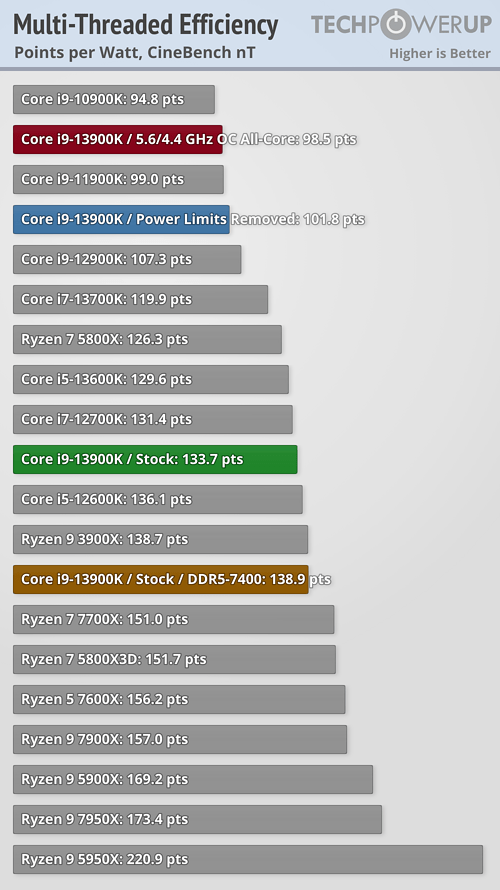TerryLaze
Titan
For what reasons did they do it then?I never made any assertions for the above conspiratorial claims. I focused my writings on my claim that the default profiles were used to make Intel look as good comparatively as possible at "default" settings.
Other than conspiracy it can only be bias which would be as much an reason as conspiracy, or complete incompetence which would also be the same.
We had an official profile from day one, pl1=pl2=253W was plastered all about, reviewers deliberately ignored that and searched for mobos with the highest settings...because clicks.Because Intel has no official default power profile it's very difficult to get anything but essentially OCed CPUs with varying amounts of performance boosting settings based on motherboard selection.
The default profile would have been pl1=pl2=253W , reviewers where and still are completely free to use this setting, and with that setting intel would have won enough benchmarks to not care about another 1-2% in general benchmarks, especially for 40-50% more power.With in mind, the so called 'default' profiles are all that there is to compare against AMD, thus giving Intel an optics win in reviews because their 'default' CPUs are winning by X%. If there were an actual Intel prescribed power/behavior profile, you could have much better comparisons with AMD. Winning by a higher percentage is always better optically. Intel prefers this strategy, but it comes at a cost sometimes and it's time to pay. This practice led directly to the issues in the article. Fly too close to the sun and eventually your wax wings will melt.
And they would also be stable.





